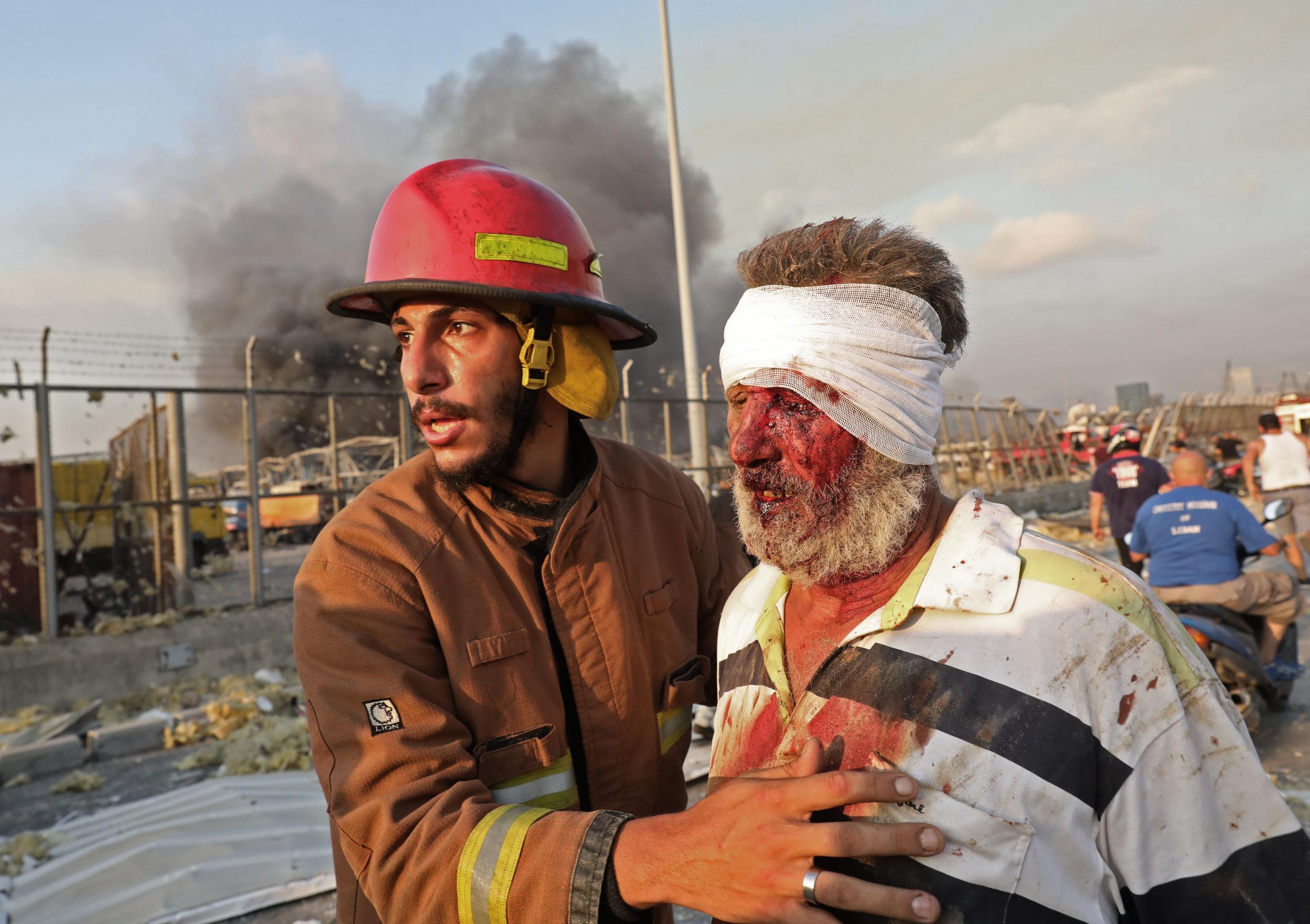In the wake of the Beirut explosion, it took a team effort to piece together what happened that day
From Beirut to Moscow, our journalists on the ground worked together to provide comprehensive coverage of the unfolding disaster in Lebanon, writes Gemma Fox


Last week’s explosion in Beirut took us all by complete surprise. We watched in horror and disbelief the terrible videos starting to circulate on social media – the initial fire, the huge mushroom cloud towering over the port and the ear-piercing bang that followed, shattering windows, mangling houses and killing more than 200 people.
Unlike the opinion of some, Beirut is not “used to conflict.” The city’s residents are not “resilient” and accustomed to death and devastation. The civil war, which seems to be mentioned in any story about Lebanon, is not a period that the country’s youth grew up under. For those who frequented Gemmayzeh over the years – myself included – there was not a sense of imminent danger and brewing unrest (or that there was a huge pile of explosives nearby).
It was not ‘the Paris of the Middle East’ – it was Beirut, and it was beautiful.
When the news broke, our correspondent Bel Trew was thankfully outside the capital and staying in the mountains – but could still hear and feel the impact of the blast.
Trew rushed back to the centre of the explosions. It was chaotic, and difficult – her house was affected, but thankfully, cats unharmed. Frantic calls were made to check in on friends.
She instantly started filming the devastation and headed to the hospital to report on the thousands injured.
“It was the worst thing I have ever seen,” one 21-year-old told her – still shaking, with blood smeared down his face from pulling the wounded out from rubble.
The next morning, the enormity of the destruction was laid bare, as people desperately searched for loved ones. As we reported, some were lucky, others were not.
From Moscow, Oliver Carroll started to track down where the boat carrying the stockpile of 2,750 tons of ammonium nitrate had come from, and why it ended up in Beirut’s port.
Kim Sengupta, our diplomatic editor, then reported on why, once it did arrive, the authorities failed to do anything about it – despite being aware of the risk it posed. A couple of days later and Lebanon’s president, Michel Aoun, admitted to knowing about the “floating bomb” weeks before.
The death toll rose, the mayor spoke of 300,000 homeless – and yet, still, the government did nothing.
As we reported, it was left to ordinary citizens to provide emergency support. Anger mounted and thousands began to spill out onto the streets, demanding the fall of the government.
The administration, which had only been in power since October after mass rallies forced out the previous government, resigned – but tried to evade blame.
One week on, and we published our special report tracing the paper trail of negligence and incompetence that led up to the devastating explosion. It was a collaborative effort between Bel Trew, Oliver Carroll, Samira el-Azar and Richard Hall and showcased the very best of The Independent’s foreign coverage.
Yours,
Gemma Fox
Deputy international editor
Join our commenting forum
Join thought-provoking conversations, follow other Independent readers and see their replies
Comments